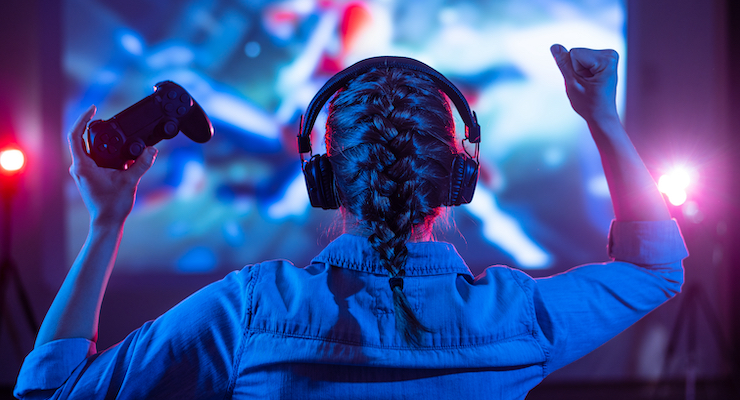11.03.21
NooLVL, a bonded arginine silicate ingredient marketed by Nutrition21, was evidenced in a newly-published study to offer a variety of cognitive benefits when administered to gamers when stabilized in a formulation with inositol, a sugar associated with changes to insulin sensitivity and hormones regulating mood and stress.
The double-blind, placebo-controlled, crossover trial was conducted in 26 male and female participants who were classified as experienced gamers based on the quantity and duration of which they play video games. Performed at Texas A&M University and appearing in the journal Nutrients, the study involved administering 1600 mg of either NooLVL or a placebo to the participants in a single dose.
Prior to supplementation, all participants took several cognitive tests, including the Berg-Wisconsin Card Sorting Task Test, the Go/No-Go Test, the Sternberg Task Test, Psychomotor Vigilance Task Test, and the Cambridge Brain Sciences Reasoning and Concentration Test, as well as a light reaction test. The subjects then played their favorite video game for one hour and repeated the battery of tests post-game, 15 minutes after taking either a supplement or a placebo. The tests were then taken again in a crossover fashion after a 7 to 14-day washout period.
Based on the post-game cognitive performance tests, the authors of the study concluded that supplementation significantly improved participants’ performances in the domains of short-term and working memory, reaction time, and concentration, backing results seen in prior research.
The authors of the study concluded that the supplement likely benefitted the gamers by increasing concentrations of both nitric oxide and arginine levels in the blood, resulting in “improved primary outcomes of reaction time and working memory among e-sport gamers in several cognitive function related tests with no reported stimulant-related side effects.”
“This is our second study on NooLVL showing a range of cognitive performance benefits specifically in gamers,” Danielle Greenberg, PhD, FACN, vice president of scientific affairs for Nutrition21, said. “This latest research allows us to add new cognitive performance claims around short-term and working memory, as well as reinforce the reaction time claims from our first study.”
The double-blind, placebo-controlled, crossover trial was conducted in 26 male and female participants who were classified as experienced gamers based on the quantity and duration of which they play video games. Performed at Texas A&M University and appearing in the journal Nutrients, the study involved administering 1600 mg of either NooLVL or a placebo to the participants in a single dose.
Prior to supplementation, all participants took several cognitive tests, including the Berg-Wisconsin Card Sorting Task Test, the Go/No-Go Test, the Sternberg Task Test, Psychomotor Vigilance Task Test, and the Cambridge Brain Sciences Reasoning and Concentration Test, as well as a light reaction test. The subjects then played their favorite video game for one hour and repeated the battery of tests post-game, 15 minutes after taking either a supplement or a placebo. The tests were then taken again in a crossover fashion after a 7 to 14-day washout period.
Based on the post-game cognitive performance tests, the authors of the study concluded that supplementation significantly improved participants’ performances in the domains of short-term and working memory, reaction time, and concentration, backing results seen in prior research.
The authors of the study concluded that the supplement likely benefitted the gamers by increasing concentrations of both nitric oxide and arginine levels in the blood, resulting in “improved primary outcomes of reaction time and working memory among e-sport gamers in several cognitive function related tests with no reported stimulant-related side effects.”
“This is our second study on NooLVL showing a range of cognitive performance benefits specifically in gamers,” Danielle Greenberg, PhD, FACN, vice president of scientific affairs for Nutrition21, said. “This latest research allows us to add new cognitive performance claims around short-term and working memory, as well as reinforce the reaction time claims from our first study.”




























